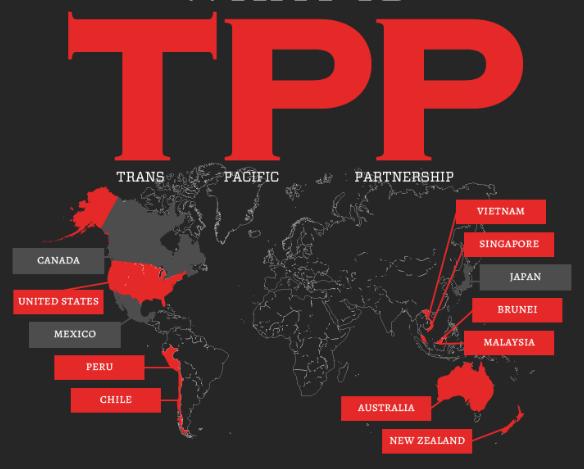President Obama on Tuesday evening said that progressives like Sen. Elizabeth Warren (D-Mass.) who have called out the Trans-Pacific Partnership (TPP) agreement for being a corporate-power grab and have vowed to defeat legislation designed to ram it through Congress are simply “wrong” when it comes to the pending deal between the U.S. and 11 Asian and Pacific nations.
Specifically singling out Sen. Warren for her steadfast opposition, Obama defended the TPP in an interview with MSNBC‘s Chris Matthews that aired Tuesday evening.
“I love Elizabeth. We’re allies on a whole host of issues, but she’s wrong on this,” Obama said about the deal.
In op-ed earlier this year, Warren condemned the TPP for its inclusion of a provision known as Investor-State Dispute Settlement, or ISDS, which would allow private corporations to sue governments if they believe laws or regulations are impeding their ability to make profits or adequately compete in a market. “The name may sound mild, but don’t be fooled,” argued Warren. “Agreeing to ISDS in this enormous new treaty would tilt the playing field in the United States further in favor of big multinational corporations. Worse, it would undermine U.S. sovereignty.”
And last week, Warren spoke at an anti-TPP rally sponsored by the AFL-CIO where she told the crowd: “Are you ready to fight any more deals that say ‘we’re going to help the rich get richer and leave everybody else behind’? Workers have to fight back. I’m proud to be with you and I’m going to be with you all the way.”
Watch:
On Tuesday, Senator Harry Reid, the top-ranking Democrat in the Senate, voiced his strongest opposition yet to pending bills in Congress that would grant the Obama administration what is known as Trade Promotion Authority, or Fast Track, which would give the White House power to finalize the terms of the deal without oversight or input from lawmakers. If Fast Track is approved, the trade deal would receive only an up-or-down vote in Congress without the ability to make changes.

